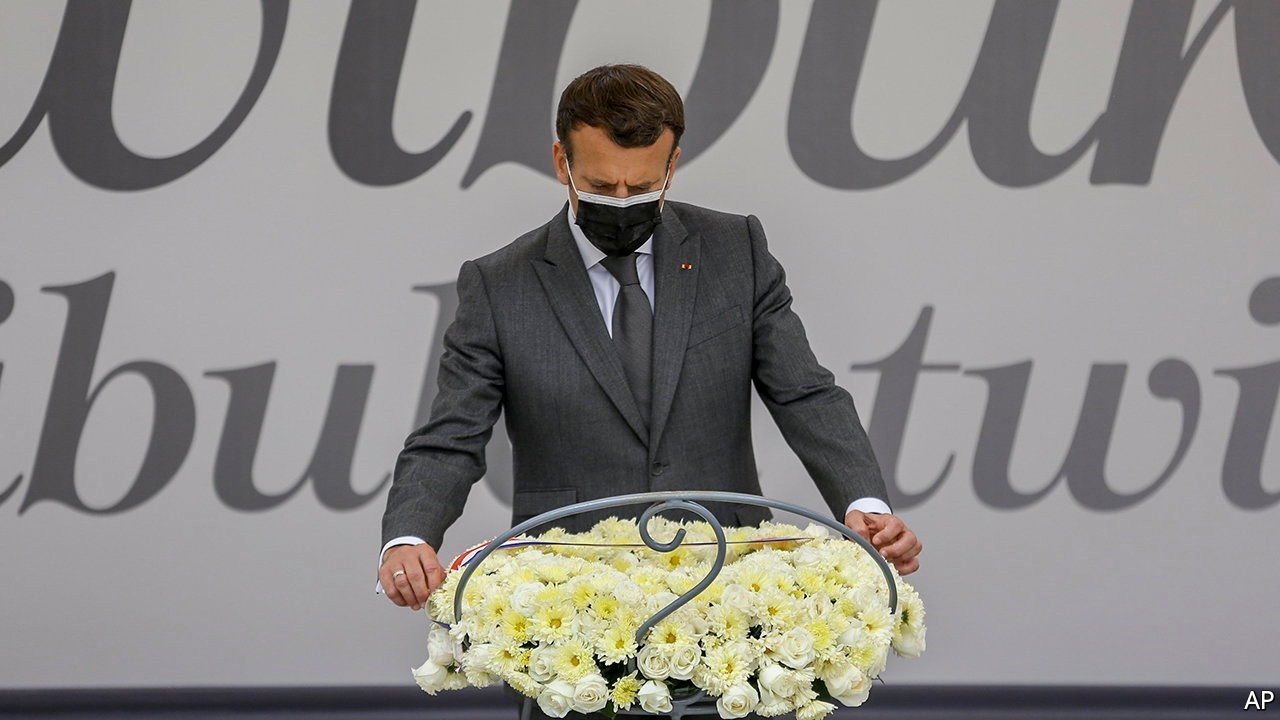France is trying to reset African policy

F Lance “must do” Face history and recognize the share of suffering it has given to the people of Rwanda. On May 27, President Emmanuel Macron declared at the Murambi Genocide Memorial in Kigali, the capital of Rwanda (pictured). “By ignoring the warnings of the most visionary observers, France took significant responsibility in the worst-case series of events.” He said the genocide survivors “probably” France. I wanted to forgive.
Macron was the first French president to acknowledge responsibility for the slaughter of hundreds of thousands of Rwandans, especially in Rwanda, in 1994. French leaders have long recognized what is happening in their country. Was “misunderstood”. Under Tutsi’s guidance, Rwanda cut off diplomatic relations with France in 2006. In his speech, Macron disappointed the survivors of the genocide because he did not apologize explicitly, but President Paul Kagame of Rwanda said his words were “more powerful than an apology.”
In Paris, Macron’s approval is considered part of an effort to reset African policy and is using history to rebuild current relationships. Last year, France produced 27 works of art in Benin. He also agreed to end France’s financial support. CFA The West African currency, the franc, is considered a colonial relic (still in use today). This year, historians released two official reports, one by Benjamin Stora on France’s role in Algeria and one by Vincent Duclert on France’s actions during the Rwandan genocide. “History has a great influence on our relations with Africa,” said Elve Bellville, Rwandan-born leader of the Macron Party.
The 992 page Duclert report is terrible. It concludes that it had “overwhelming responsibility” for France’s failure to do more to stop the slaughter. At the time, officials who questioned French policy, aid workers. The person, or reporter, was “struck by indifference, refusal, or malice.” Decisions on Rwanda were concentrated on the president under François Mitterrand. Authorities dismissed the massacre as a mere “tribal” conflict. There was a fundamental concern behind French policy: Kagame’s “threat of the Anglo-Saxon world” represented by the English-speaking Rwandan Patriotic Front.
Macron’s African reset is based on fresh strategic geopolitical calculations. France has been “in the past”FranAfricaA cozy net of ties to the former colony. In contrast, Macron declared in 2017 that he was from a “generation that would not come to Africa and tell us what to do”. He is keen to promote the broader economic interests of France. Being wary of competition with China and Turkey, he sought a non-French-speaking leader. After Rwanda, he headed to South Africa to introduce the covid-19 vaccine on the continent, and even in France. Discussed business.
There is tension in this strategy. Mr Kagame’s involvement with the increasingly unfriendly English-speaking dictatorship is controversial. History, if not new, still underpins old networks. France has 5,100 soldiers stationed in the (French-speaking) Sahel as part of Operation Barkhane, a rebellion suppression operation. It looked as usual when Macron flew to Chad in April, attending the funeral of the country’s influential man Idris Debbie for 30 years and calling him a “loyal friend.” France’s leading military partner in Operation Barkhane.
France’s Sahel policy is particularly tense after the recent expulsion of President Mali and the Prime Minister by Assimi Goita, who led a military coup last year. On June 2, the African Union suspended Mali’s accession and threatened to impose sanctions if the civilian-led government did not recover. “We can’t stay there forever,” Macron, who is to review the unit level in the region. However, history suggests that such threats are easier to publish than to carry out. ■
This article was published in the printed Middle East and Africa section under the heading “Atonement.”


